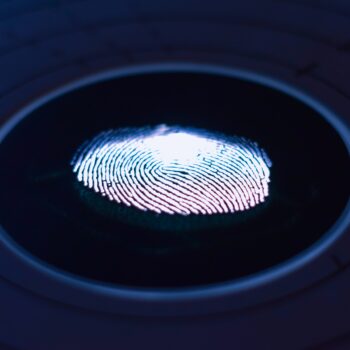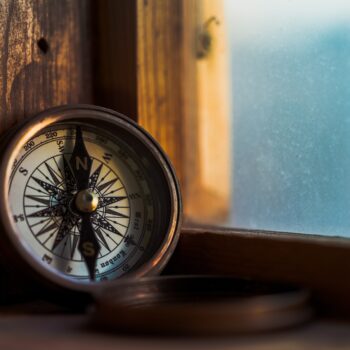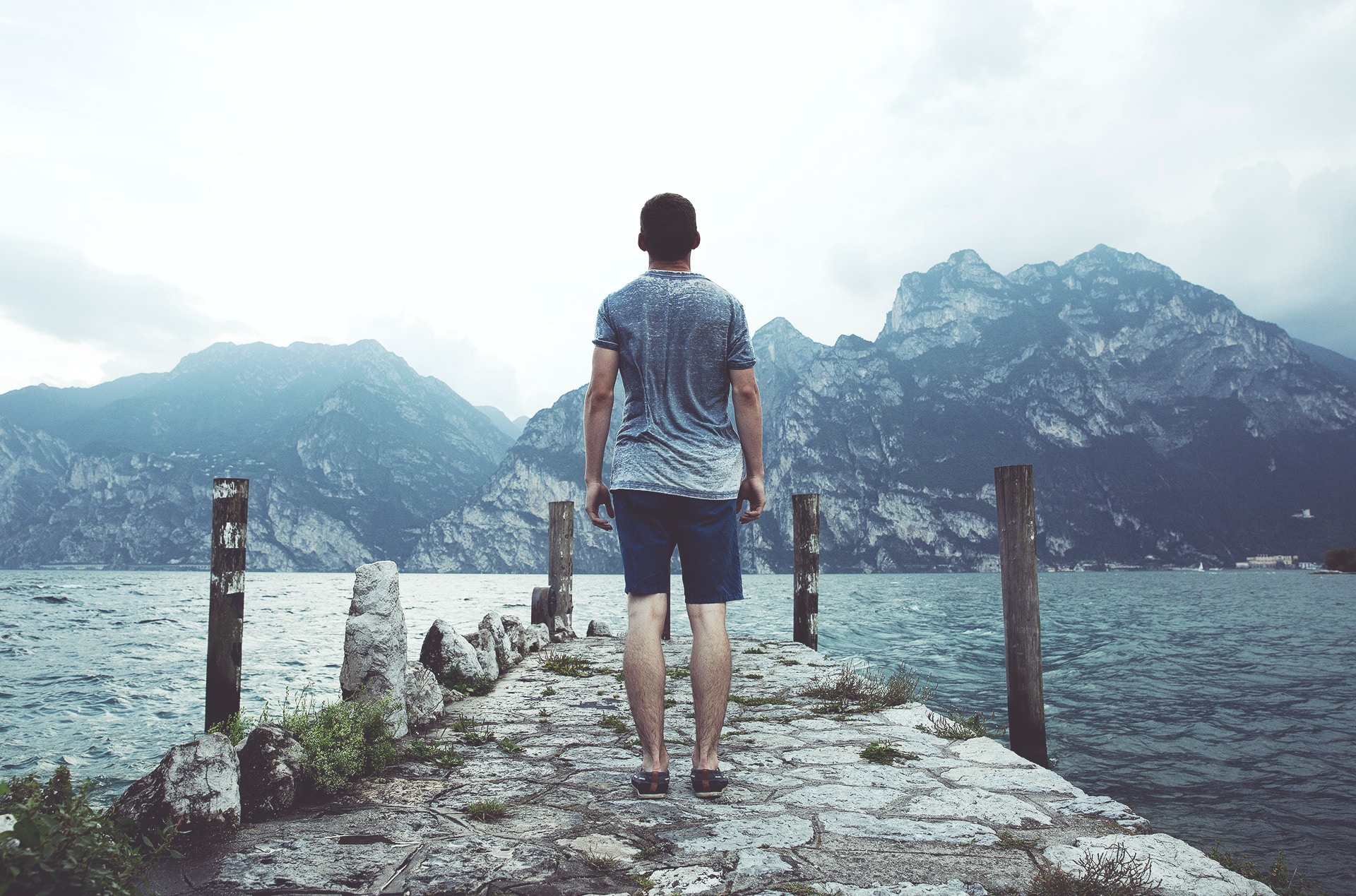Courage
Courage is the willingness to step into the void with no guarantees. It’s the willingness to admit to ourselves and others when we have underperformed our potential. It’s the willingness to put ourselves into situations where all we have to rely on is our own capabilities.
I love courage. I love how it calls to us like a knowing ancient presence. Challenging us to rise to our capabilities and doing so in a way which makes us realize the foolishness of our fears. It’s what brings out our greatness, because it gives us the strength to stand for what we know to be true. To insist on terms which we known we deserve.
I love too, the way courage has so many faces. It’s the child who boldly leaps from one piece of the sidewalk to the next. The entrepreneur who builds an entire company from nothing but an idea.The skier who after suffering a major injury and enduring months of rehab, leans in and once again races down the face of the mountain.
I believe we are all born with great courage, and it exists in our DNA for a critical reason.
I glimpsed that reason during the experience of writing the book Life Safari. I had a vision of the human experience where before we enter the physical form, we pick the challenges we want to take on during our human experience. Kind of like the way we map out all the places we want to see, or things we want to do when we go on vacation.
Only this experience before we’re born is mapping out our life. And we design it with the intention that what we pick will enable us to grow. So of course we don’t pick simple, easy to overcome experiences. Because those wouldn’t bring much growth. Instead, we take on large challenges. Maybe some of them are physical, like the way we look. Others could be dealing with an injury or an illness. Still others could be mental challenges, such as overcoming unsupportive or even overly critical people in our lives.
In addition to the challenges we pick though, we also get positive attributes which will help us overcome the challenges. Our own unique super power mix. Courage being one of the key ones. Then we’re born, and we don’t remember the challenges we picked, and we don’t remember the positive attributes we have either. Which is all part of the game. Because as our human life progresses, the challenges begin to show themselves. Which opens up the possibility for us to discover and embrace our super powers to take on the challenges.
With that framework in our awareness, we have the chance to look at life from a very different vantage point. It’s not about trying to avoid being crushed by life’s challenges. It’s about figuring out those challenges as part of our path to an amazing life. All of a sudden we’re an adventurer in the midst of a game. We realize that the challenges aren’t going to go away by themselves. As a matter of fact, the way the game is designed, if we don’t deal with the challenges, they’ll just re-appear over and over, with more and more intensity each time.
We embrace the game, which includes looking for what super powers we infused ourselves with to help us win. Then with those in hand, we courageously move through the game, knowing that not every moment will be a victory. But we’re not designed to fail either.
Just the willingness to put life in this context requires courage. Because it assigns responsibility to ourselves. We are in charge of our own destiny. We are the creators of our reality. We control what happens to us. This is simple to do on a day when everything is going well. On a day when we’re face to face with a major challenge it can feel much more daunting.
 Which I believe is why we’re not on this adventure alone. Because on a day when our own courage seems lacking, it’s easy to re-build it through examples of those around us. We have access to an unlimited supply of stories of real people, who have taken on their challenges and risen above them. Their demonstrations of courage remind us that we too have it within us to be courageous. We too have what it takes to take not only survive, but grow, thrive, and excel.
Which I believe is why we’re not on this adventure alone. Because on a day when our own courage seems lacking, it’s easy to re-build it through examples of those around us. We have access to an unlimited supply of stories of real people, who have taken on their challenges and risen above them. Their demonstrations of courage remind us that we too have it within us to be courageous. We too have what it takes to take not only survive, but grow, thrive, and excel.
And the ways in which others have demonstrated their courage cover an incredible array of scenarios. Parents overcoming obstacles to raise their children, men and women flying into space, adventurers crossing oceans in a rowboat, teenagers creating new inventions, blind people learning to read brail, scientists finding cures for diseases…. No matter what challenges we are facing, there are examples of people who have overcome those exact challenges, or something very similar.
These examples of courage don’t just need to come from people who are alive now, either. While there are certainly plenty of those, stories of courage go back hundreds, even thousands of years.
Learning these stories is humbling. It often makes our own challenges seem small in comparison, because no matter what we are facing, there is always someone who has faced something tougher and overcame it.
What is the way we can grow our courage? Especially when we feel small inside.
The answer is we learn from a baby. A baby doesn’t go from crawling to running a marathon in one day. It’s a building process. For months they observe what walking looks like. Then they build their muscles with crawling. Eventually, when they have gotten strong enough, they pull themselves up and practice standing. When that’s mastered, they try walking. Then, and only then, do they progress to running. 
Becoming more courageous follows a similar path. Take advantage of the array of technological advantages we have at our disposal to watch courage in action. Get on YouTube and search for “Inspiring Videos”. Do a Google search for “People who have overcome _______”. In the blank space, insert whatever challenge you’re dealing with. Watch TED talks.
Head to the library and go to the youth biography section. Take home a bunch of books on people you’ve heard about but don’t know their real story. Biographies from the youth section are fantastic because they tend to be shorter and more direct. So you can get through an entire biography in an hour or so. There’s a great series called “Who Was ______” and “Who Is ____”. The Who Was ones are for people that have passed away. The Who Is are for people who are still alive. I love this series. They tell about the good times, the challenging times, and the obstacles these people faced during their life. Which is really powerful because when you read about the obstacles and challenges and what the person did to overcome them, it gives you great ideas for overcoming your own obstacles and challenges.
All of these activities will help you observe courage in action.
It’s time to strengthen your own courage muscles.

Start small. If you want to be an adventurer, but are afraid to travel, then start by walking down a new road in your town. Just a single new road. Five minutes up the street and five minutes back. Do that route every day for a week. Then the next week pick a different road. After a month, try riding a bicycle to a random place and then home. From there, build up to taking a bus to a place you’ve never been. They’re all mini-adventures. Treat them like parts of a game.
As you’re progressing through these small acts of courage, keep supporting yourself with the books, videos and stories. Because something from a story which might seem way beyond your capabilities at the beginning of your development, will become well within your reach after a few months, or a year. Soon you’ll be doing things which are worthy of your own inspiring video.
A critical key to any growth is knowing what you’re growing into. What’s the destination? When will you know you’ve arrived? In the context of courage, what does being courageous mean for you? Is it the ability to stand in front of an audience and tell your story? Is it being honest with yourself when you’ve made a mistake? Is it quitting a job or relationship which isn’t healthy?
Having clarity about our destination gives us the ability to focus our growth as we build our courage capabilities. We can find role models specific to our unique situation. Think about those books and videos. It’s fantastic to learn about any act of courage. Even better is learn about people who’s acts of courage helped them overcome a specific obstacle or challenge which is just like the one we’re facing.
A useful technique for discovering your courage destination is to use the Stop, Start, Continue categories.
Courage for you means you’re going to stop what? Maybe it’s an action you do to yourself, like putting yourself down, either verbally or through your thoughts. Maybe it’s an action you do to others which you don’t like doing, but you’re afraid to stop for some reason.
How about Start? If you were absolutely loaded with courage, what would you be doing that you aren’t doing now? Would you dress a particular way? Would you fill your time with activities you aren’t doing now because you’re afraid of what other people might think? Or are you hesitating because you know you won’t be good at them in the beginning?
“Remember, every dancer, artist, entrepreneur, film maker, baker, scientist…started off knowing nothing about what they became an expert in.
Just like that baby learning to walk, we all start a long way from what we end up being able to do. But if we don’t start, we never get better.
And then there’s Continue. Many times courage means continuing to do something which is important to us even when the rest of the world seems to be saying we’re crazy. What activities are you doing now which fill your soul? Is it that bike ride once a week through the woods? Yoga every Friday? Make sure you continue to embrace those and even expand them, which will require going back to the Stop category. Most people have pretty full lives. So expanding more time in one area is going to require stopping doing something else. Stopping gets progressively easier when we know we’re not just stopping something, but we’re replacing it with an alternative we already know makes us feel more alive.
As a final thought on courage, I encourage you to find the proper motivation. Because when the motivation is large enough, we will always take on challenges which would otherwise seem insurmountable. For parents, a very useful motivation is realizing that our actions become the role model for our children. For people who aren’t parents, realize your actions are the role model for those around you. Very often we will do more for others than we will for ourselves. In this context that means moving forward to develop our courage, so we can overcome our challenges and live our version of an amazing life. Not just for ourselves, but so that our children, and/or the other people we care about, have the best chance of living an amazing life too.
Enjoy the adventure!
John P. Strelecky is the author of the #1 Bestselling Das Café am Rande der Welt and Big Five for Life series of books. To get help mapping out the life you want to live, please visit: https://bigfiveforlife-seminar.com

